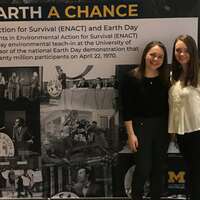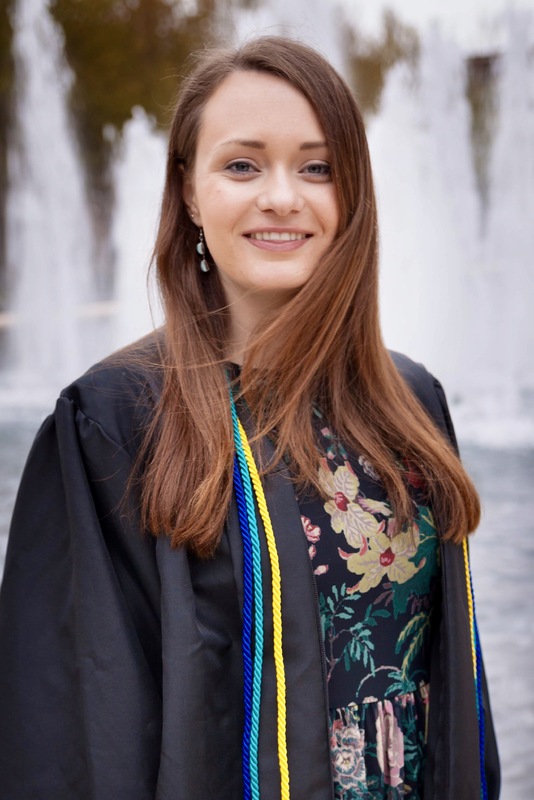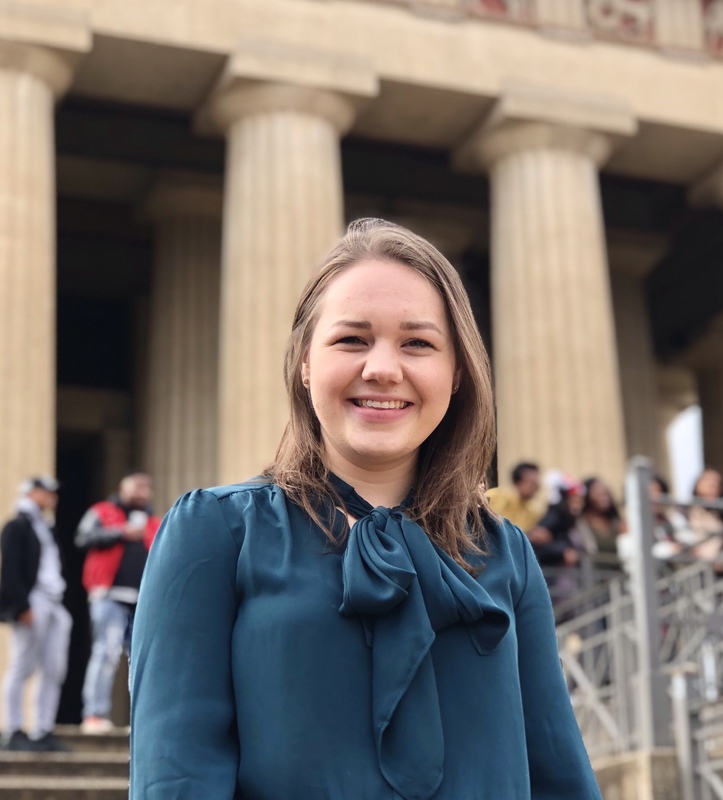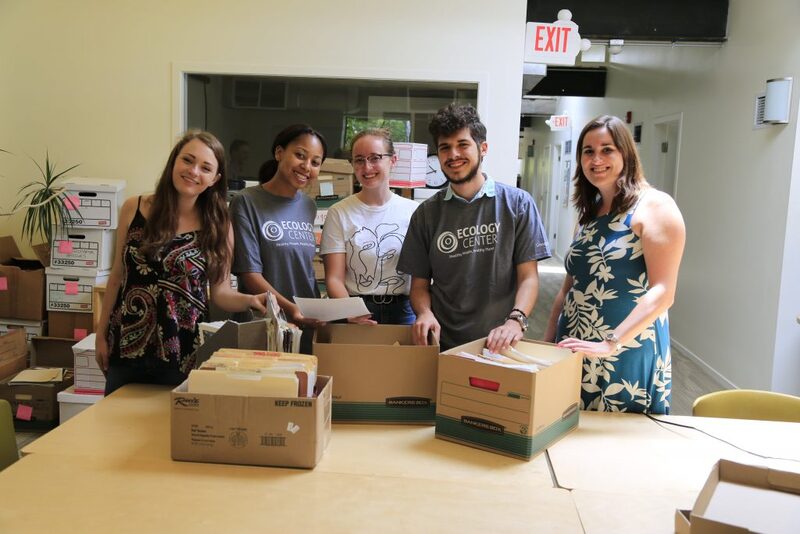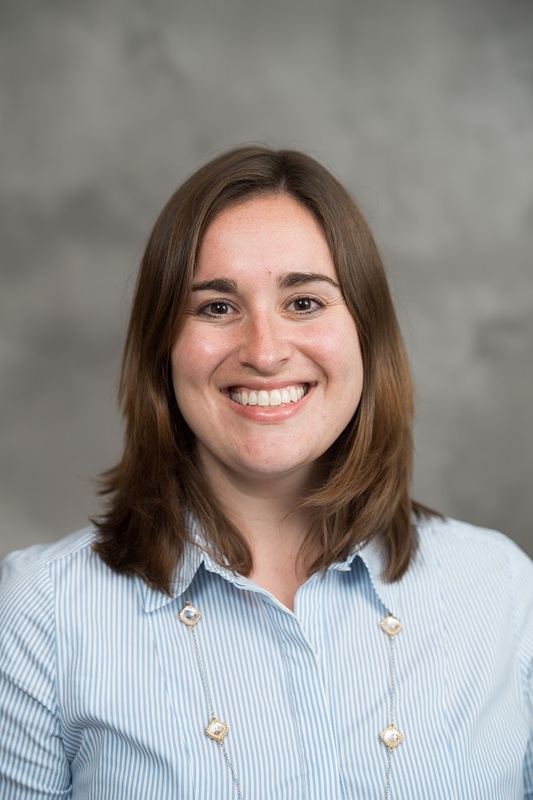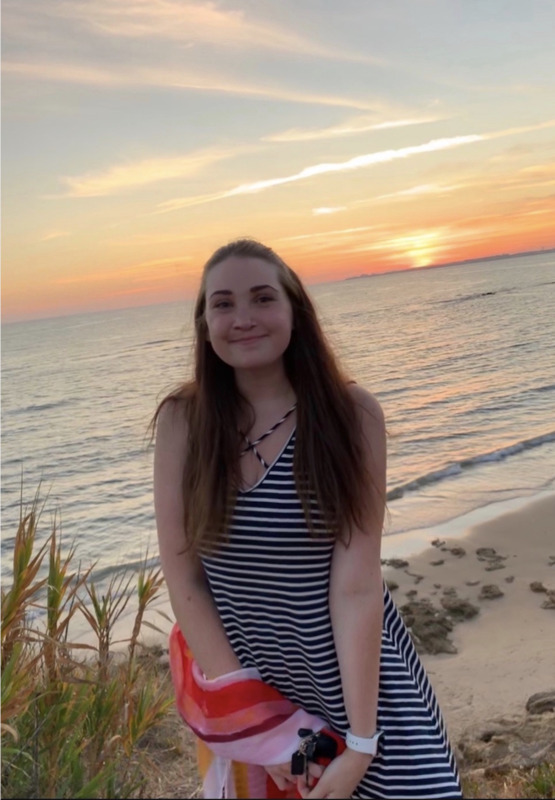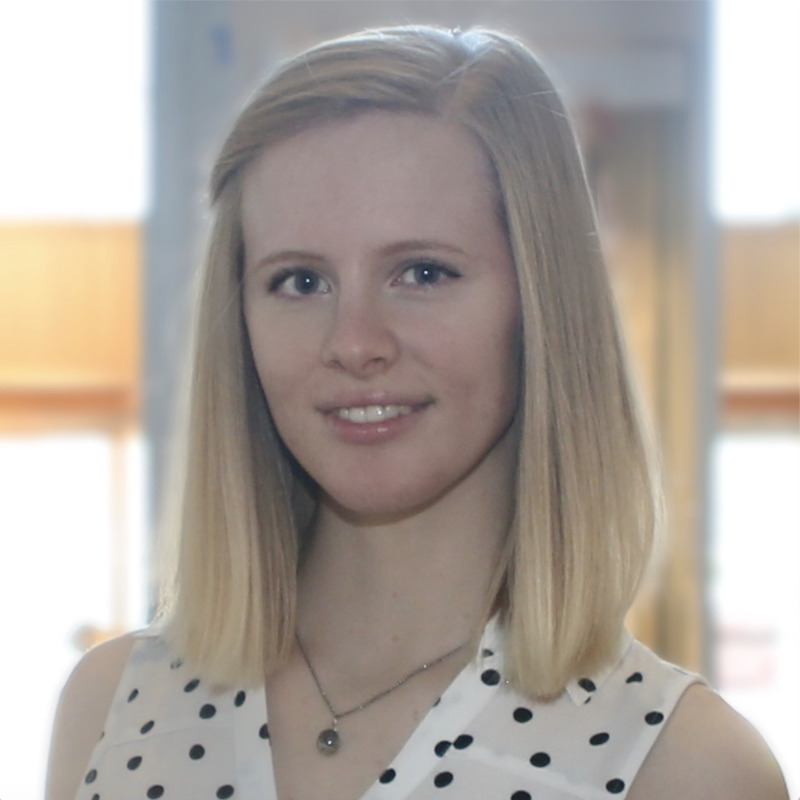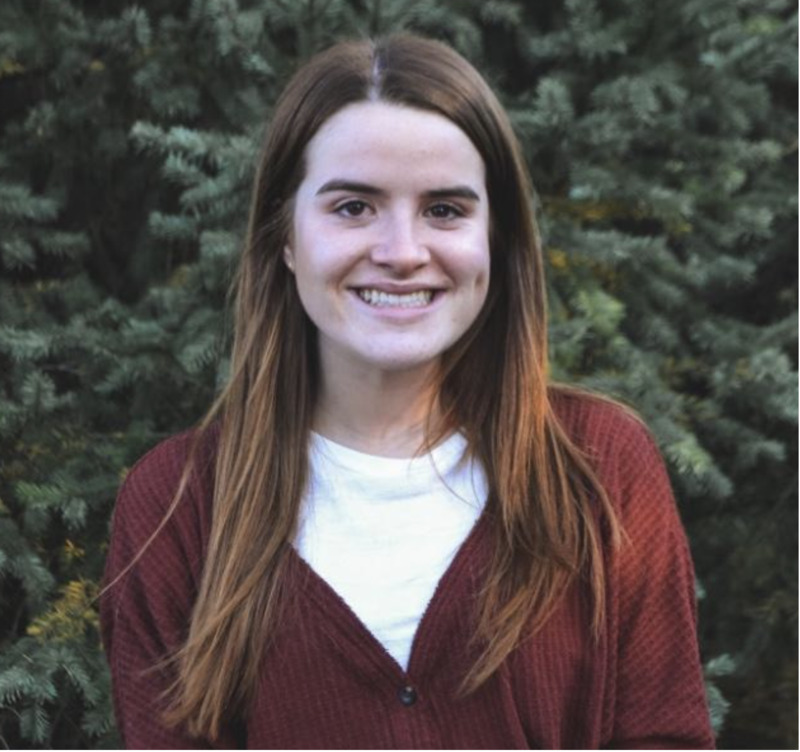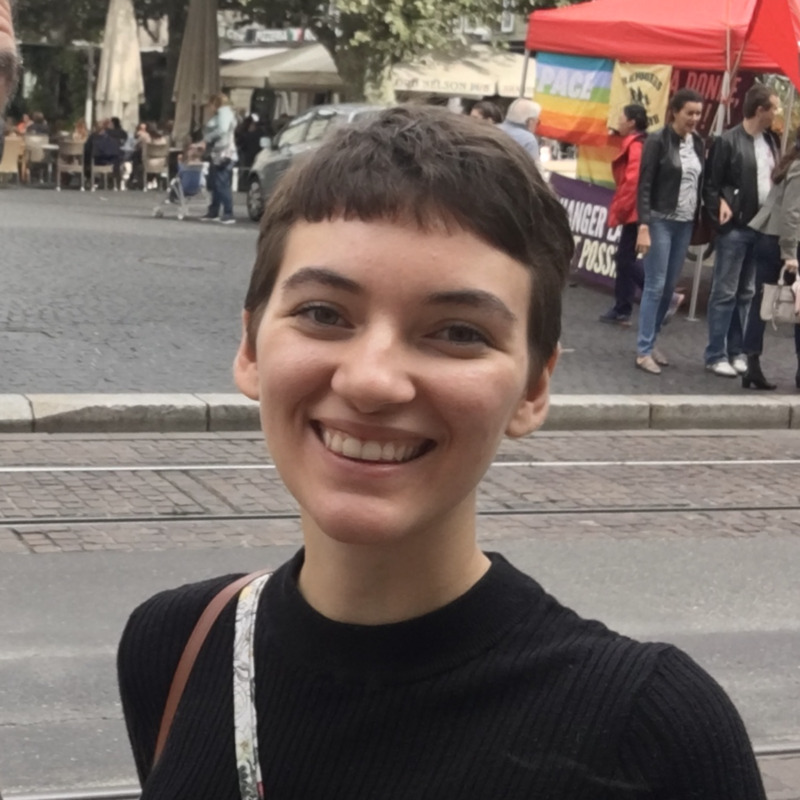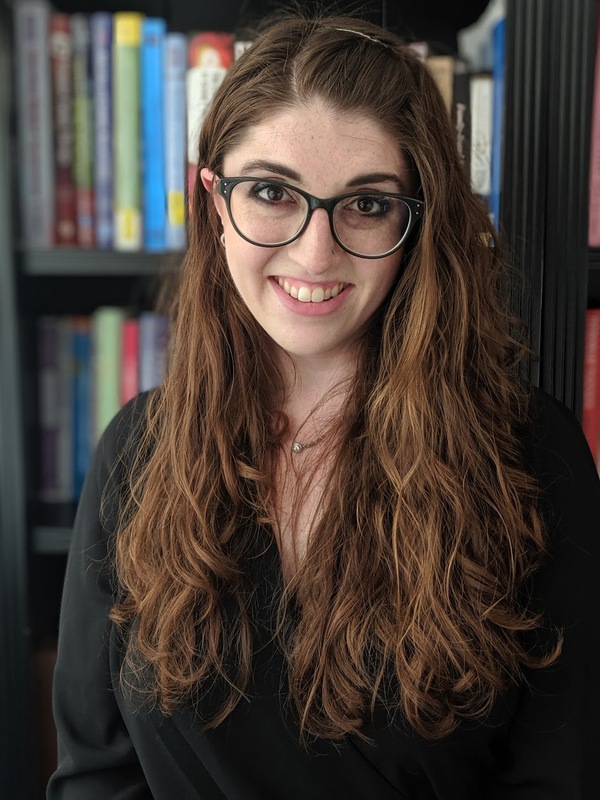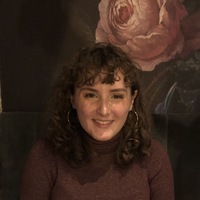About the Research Team
The project's inaugural research team worked with Professor Matt Lassiter to document the Ecology Center's first ten years from 1970-1980.
Meghan Clark graduated from the University of Michigan in 2019 with a major in history and a minor in environmental studies. During her undergraduate career, she taught an honors course about the modern environmental movement, participated in three archival research projects, and wrote an honors thesis about the banning of DDT in Michigan. Most recently, Meghan Clark and Hannah Thoms contributed to Teaching Undergraduates with Archives, co-authoring a chapter entitled “Give Earth a Chance: History Undergraduates and Environmental Activism in the Archives.” She served as an Engelhardt Social Justice Fellow with support from the U-M LSA Center for Engaged Academic Learning.
Amanda Hampton graduated from U-M in 2018 with majors in political science and history and a minor in German. Her interests in the environment, student activism, and history motivated her to participate in this project.
Hannah Thoms graduated from the University of Michigan in 2019 with a major in Anthropology and minors in Museum Studies and History. She researched the Ecology Center’s founding decade as a 2018 History Fellow. Hannah also worked on the U-M HistoryLab projects “Give Earth A Chance: Environmental Activism in Michigan” in 2017 and “Detroit Under Fire: Police Violence, Crime Politics, and the Struggle for Racial Justice in the Civil Rights Era” in 2018. Following her interests in social activism and public history, Hannah currently works as a Collection Assistant at the Motown Museum in Detroit.
Spring/Summer 2019
Supervised by Katherine Hummel, the 2019 team digitized hundreds of archival records connected to environmental advocacy and developed site content relating to the Ecology Center's activities in the 1980s and 1990s.
Basil Alsubee
Meghan Clark graduated from the University of Michigan in 2019 with a major in history and a minor in environmental studies. During her undergraduate career, she taught an honors course about the modern environmental movement, participated in three archival research projects, and wrote an honors thesis about the banning of DDT in Michigan. Most recently, Meghan Clark and Hannah Thoms contributed to Teaching Undergraduates with Archives, co-authoring a chapter entitled “Give Earth a Chance: History Undergraduates and Environmental Activism in the Archives.” She served as an Engelhardt Social Justice Fellow with support from the U-M LSA Center for Engaged Academic Learning.
Naomi Fergusson
Izzie Kenhard
Katherine E. Hummel (supervisor) is a Ph.D. candidate in English Language and Literature, and a certificate student in the Science, Technology, and Society program at the University of Michigan, Ann Arbor. She served as a 2019 Rackham Public Engagement Fellow in partnership with the Environmental Justice HistoryLab and the Ecology Center. At Michigan, she has taught classes in introductory composition, coming-of-age literature, and African environmental literature. She is currently completing a dissertation on the environmental impacts of urban infrastructures as depicted in contemporary West African and South Asian Anglophone novels.
Spring/Summer 2020
The Environmental Justice HistoryLab is excited to welcome four new undergraduate interns - Lily Antor, Frances MacKethan, Carmen Parkinson, and Nissa Theodosen-Kasparian - who will be working under the supervision of Allie Goodman. Their work focuses on the history of Ecology Center since the year 2000. Additionally, the team is also organizing and developing an archive of interviews about the EC's history.
Allie Goodman is a PhD student in the history department, studying urban history and the history of incarceration. She served as a 2020 Rackham Public Engagement Fellow in partnership with the Environmental Justice HistoryLab and the Ecology Center. At Michigan, she works as a co-coordinator for the Law and Society Rackham Interdisciplinary Workshop, and has worked with the Documenting Criminalization and Confinement project. She was also a 2019-2020 cohort member of the Race, Law, and History Fellowship Program.
Lily Antor is a rising junior in Michigan's LSA College. She expects to graduate in May 2022 with majors in history and political science, as well as minors in English and energy studies. On campus, Lily acts as a dialogue facilitator and student leader in the U-M Global Scholars Program, works to help register student voters with Turn Up Turnout and the Ginsberg Center for Civic Engagement, and serves as the Chair of Communications for Epsilon Eta, U-M's professional environmental fraternity. She was also selected to participate in the U-M Public Service Intern Program as a 51st cohort member.
Frances MacKethan is going into her senior year at University of Michigan where she is majoring in History. Her interest in environmentalism and previous work as an Oral History Intern at the Detroit Historical Society are what drew her to this project. For the Environmental Justice History Lab 2020 summer internship, Frances organized and indexed interviews on the EC’s history in addition to researching and writing for the website.
Carmen Parkinson is a rising junior at the University of Michigan with an Environmental major and a History of Law and Policy minor. She is hoping to have a career in environmental law or policy, and loved the opportunity to research and highlight the incredibly environmental justice work the Ecology Center has done since their founding. Carmen is from the Ann Arbor area and felt incredibly connected to the work of the Ecology Center and the environmental issues that still need to be addressed in our state. Carmen authored the Generational Transformation chapter for the 2000s, the Lindane lawsuit section, and an article about the Healthy Cars initiative.
Nissa Thodesen-Kasparian graduated from the University of Michigan in 2020 with majors in history and international studies and a minor in German. Her experiences working with environmental justice groups through U-M's Detroit Based Community Research Program sparked her interest in environmental advocacy and grassroots organizing. Joining this project allowed her to combine these interests with her passion for historical-based research.
Spring/Summer 2021
The project team's undergraduate researchers this year were Bridget Grabowski and Lillian Gooding, both rising seniors and history majors at the University of Michigan. They were supervised by Alex Honold. Together, they have worked to put together stories about dioxane pollution caused by Gelman Sciences, the creation of the Health Leaders Fellowship, and the Ecology Center's work in sustainable food systems, among others.
Alex Honold is a former history teacher and PhD candidate in the University of Michigan's School of Education. His doctoral studies focus on issues in history education, in particular, how students learn to reason causally about history and how teachers approach teaching difficult topics in history. He has developed in interest in archival research and oral histories from past summers working for the Bentley Historical Library and the (now closed) Cell Block 7 museum.
Bridget Grabowski plans to graduate in May 2022 with a major in History and a double minor in global media studies and Bosnian, Croatian, and Serbian language, literature, and culture. She is working on a thesis on the formation of NGOs by Bosniak women following the Yugoslav Wars of the 1990s. She is hoping to pursue a career at a non-profit organization that focuses on social justice and environmentalism, which made the experience researching and writing for the Ecology Center extremely fulfilling.
Lilian Gooding is a rising senior at the University of Michigan, pursuing a double major in History and International Studies and a double minor in French and the Environment. Outside of academics, she is a team leader for the national corps program, America Reads, and a staff reporter to the Michigan Daily. She plans to graduate in May 2022 and explore career options in the realm of policy and law, journalism, global environment and health, or the non-profit sector. Contributing to the Ecology Center project allowed her to combine all of these interest areas to explore and research local action with large scale implications.
Advisors
Professor Matt Lassiter (coordinator) is professor of history and Arthur F. Thurnau Professor at the University of Michigan and founder and coordinator of the Environmental Justice HistoryLab, a research partnership with the Ann Arbor-based Ecology Center to document the history of environmental justice and sustainability campaigns in Michigan.
Dr. Matthew Woodbury (advisor) is a research associate at the University of Michigan and served as a project advisor and contributor to the Environmental Justice HistoryLab during the 2019-2020 academic year. In addition to teaching courses in environmental history, he has written about the history of Ann Arbor’s Ecology Center as part of the Ecology Center at 50 series.
The project has also benefitted from feedback provided by Mike Garfield and Tracey Easthope of the Ecology Center. Funding for this project provided by the University of Michigan's Center for Academic Innovation and the Rackham Public Engagement Internship program.

